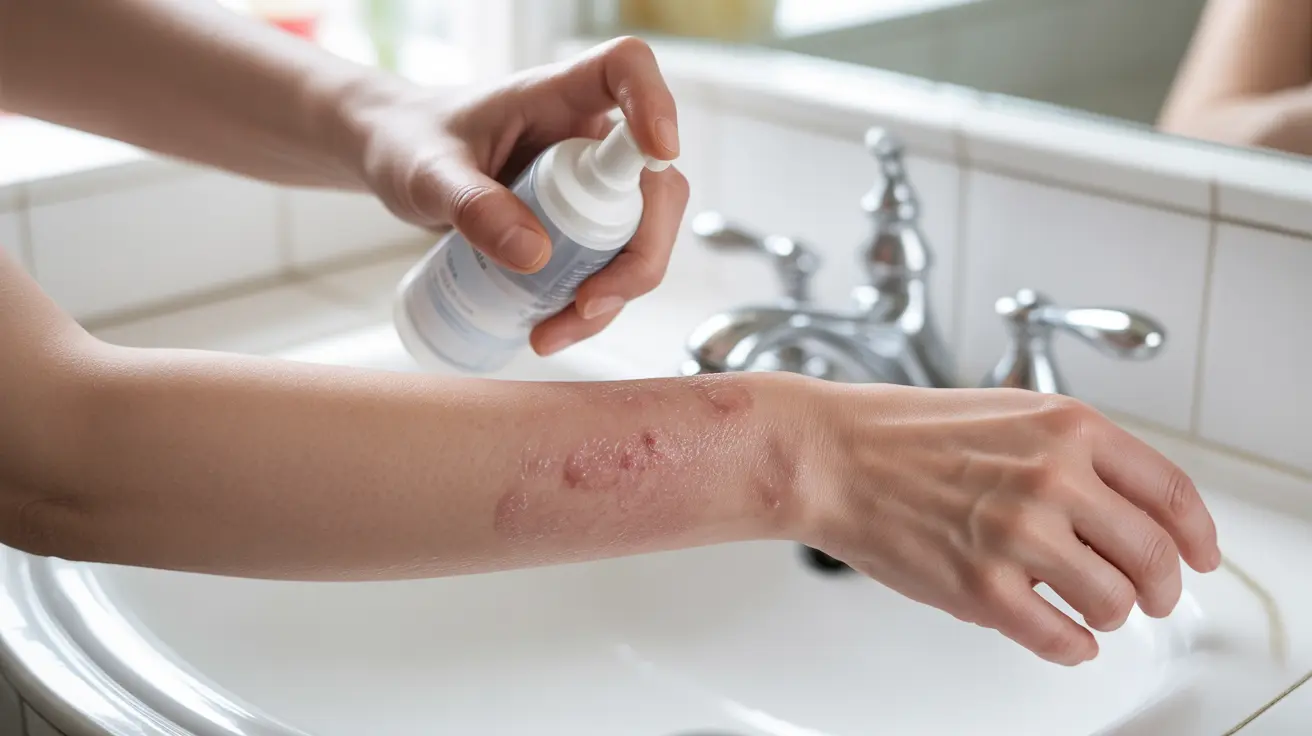Living with eczema can be challenging, prompting many people to seek effective and gentle treatment options. Hypochlorous acid (HOCl) has emerged as a promising solution for managing eczema symptoms, offering antimicrobial properties and skin-soothing benefits. This naturally occurring compound, which is also produced by our immune system, has gained attention for its potential to provide relief while being gentle enough for sensitive skin.
Understanding how hypochlorous acid works for eczema management can help you make informed decisions about incorporating it into your skincare routine. Let's explore its benefits, proper usage, and how it compares to traditional eczema treatments.
What is Hypochlorous Acid?
Hypochlorous acid is a powerful antimicrobial substance that our white blood cells naturally produce to fight infection. When manufactured for skincare use, it's created through a process of electrochemically charged salt water, resulting in a solution that closely mimics the body's own immune response.
This compound is particularly noteworthy because it's both highly effective against harmful microorganisms and remarkably gentle on human tissue, making it an excellent option for sensitive skin conditions like eczema.
Benefits of Hypochlorous Acid for Eczema
The advantages of using hypochlorous acid for eczema management are numerous:
- Reduces inflammation and redness
- Fights harmful bacteria that can worsen eczema
- Helps maintain skin barrier function
- Promotes healing of damaged skin
- Provides relief from itching
- Safe for long-term use
How to Use Hypochlorous Acid for Eczema
Incorporating hypochlorous acid into your eczema care routine is straightforward:
Application Methods
Most hypochlorous acid products come in spray form, which can be applied directly to affected areas. For best results:
- Clean the affected area gently
- Spray HOCl solution directly onto the skin
- Allow it to air dry
- Apply your regular moisturizer if needed
- Use 2-3 times daily or as directed
Safety Considerations
While hypochlorous acid is generally very safe, it's important to:
- Perform a patch test before first use
- Use products from reputable manufacturers
- Store the solution properly to maintain effectiveness
- Consult with a healthcare provider if you have severe eczema
Comparing Hypochlorous Acid to Traditional Treatments
Unlike many conventional eczema treatments, hypochlorous acid offers several unique advantages:
Versus Topical Steroids
While topical steroids can be effective, they often come with concerns about long-term use. Hypochlorous acid provides a steroid-free alternative that can be used regularly without the risk of skin thinning or other steroid-related side effects.
Versus Bleach Baths
Hypochlorous acid offers a more convenient and precisely controlled alternative to traditional bleach baths, with similar antimicrobial benefits but better safety profile and easier application.
Frequently Asked Questions
Can hypochlorous acid help reduce itching and inflammation associated with eczema? Yes, hypochlorous acid has demonstrated anti-inflammatory properties that can help reduce both itching and inflammation associated with eczema. It works by targeting inflammatory mediators while supporting the skin's natural healing process.
What are the potential side effects of using hypochlorous acid spray on sensitive skin for eczema treatment? Hypochlorous acid is generally well-tolerated, with very few reported side effects. Some individuals might experience mild temporary stinging or irritation. Always perform a patch test first and discontinue use if irritation occurs.
Is hypochlorous acid a safe and effective alternative to traditional bleach baths for eczema management? Yes, hypochlorous acid is considered a safe and effective alternative to bleach baths. It provides similar antimicrobial benefits while being more convenient to use and gentler on the skin.
How does hypochlorous acid compare to other treatments for eczema, such as topical antibiotics or corticosteroids? While topical antibiotics and corticosteroids remain important treatment options, hypochlorous acid offers a gentle, non-steroidal alternative that can be used long-term without the risk of antibiotic resistance or steroid-related side effects.
Can hypochlorous acid be used as part of a daily skincare routine to prevent eczema flare-ups and promote skin health? Yes, hypochlorous acid can be safely incorporated into a daily skincare routine. Regular use may help prevent flare-ups by maintaining skin barrier function and controlling bacterial colonization that can trigger eczema symptoms.
Remember to consult with a healthcare provider before starting any new treatment for eczema, especially if you have severe symptoms or other underlying health conditions.




